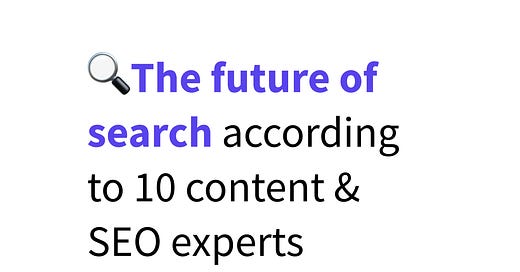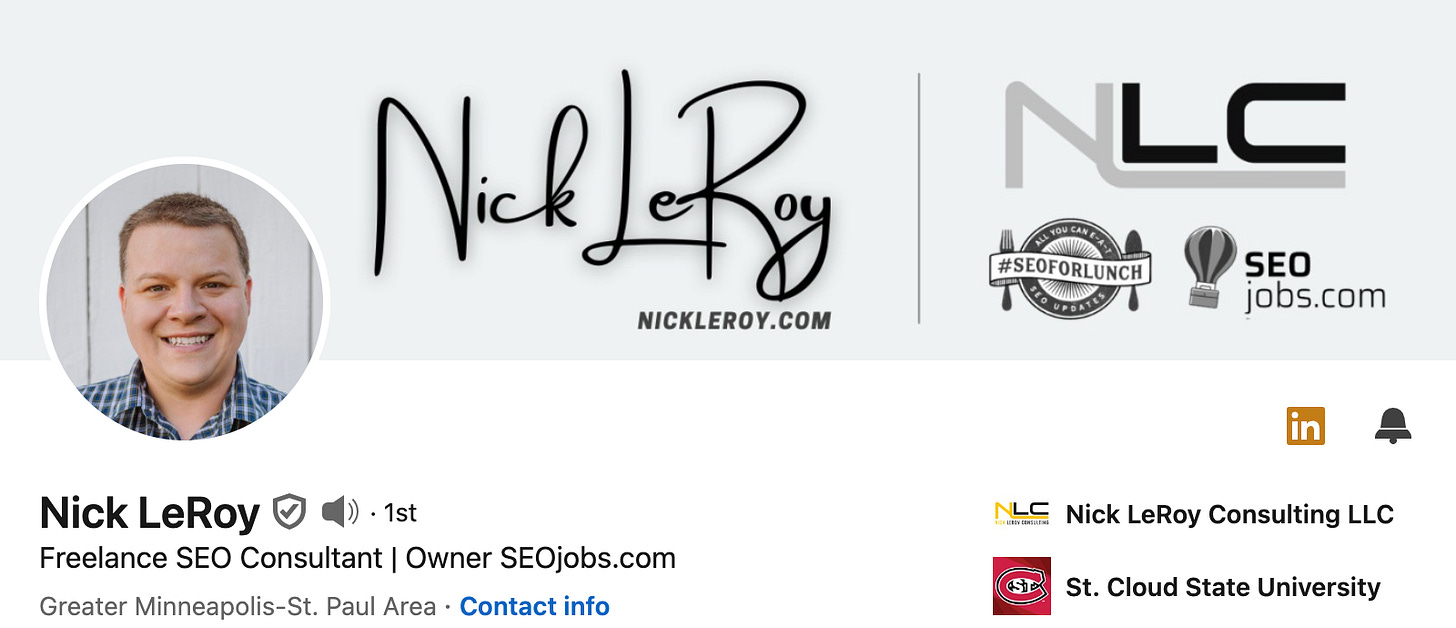Tine Dudek
I believe that the future of SEO won't be all about matching exact keywords. Instead, it'll be about diving deeper into semantic search and really getting to grips with user intent. What is the user looking for and what content will match this intent? Understanding the context and meaning behind search queries will be key.
Another observation is that we'll see a continuous rise in SEO methods prioritizing sustainable, long-lasting results. This means a balance between technical SEO, top-notch content, user-friendly experiences, and off-page efforts. SEOs need to learn to cooperate more with other internal teams and quit the silos to ensure growth.
Steven Schneider
The future of search will undoubtedly change, but what matters most is how people adapt. We'll likely see more importance on topical authority (achieved via blogging) and high-quality backlinks from reputable sites to win top spots among search results. Overlook blog content and backlinks, and your site has nearly zero chance of succeeding.
Nick Leroy
I am one of the rare SEOs who isn't terrified of SGE. Don't get me wrong, if/when it launches, it will likely significantly impact SEO, as we know it today. However, in the 15 years I've been in the industry, we've had to pivot several times. I think this is going to be the same. In reality, these types of updates will further the gap between SEOs who know their stuff and those who don't. I'm ready for the challenge!
Tom Winter
We're likely moving from keyword bingo to AI-powered natural language understanding. Imagine search engines as your own personal research assistants! This means SEO will prioritize user-centric content, ditching keyword stuffing for genuine intent and helpfulness. Text that truly resonates with the searcher's needs could be the golden ticket.
Enter SGE. It might steal the show for simple questions, with AI assistants becoming the go-to answer machines. In-depth topics that require a deeper dive will still flourish. After all, there's a limit to how much information a search engine page can comfortably display. Think of it this way, SGE is great for quick answers, while comprehensive content remains the domain of well-crafted articles and pages.
Looking even further ahead, search engines might evolve from "search" to "teach" or even "talk." Picture a future where information retrieval feels more like a natural conversation — that's the exciting perspective we might be approaching.
Andreas Soler
Getting practical to use conversational AI in search engines means users will expect and receive more natural, dialog-like interactions with search engines. People will be able to ask complex questions in natural language and receive coherent, context-aware answers.
Users will give more preference to overviews and summaries of topics directly in the search results by AI responses. This could decrease the reliance on clicking through to websites for basic information.
SEO will need to find new ways to take advantage of AI systems to provide deep, authoritative content that goes further than the surface-level information provided by generative AI.
We can look at structured data to help AI understand the context and content on our pages better, making it easier for generative AI to source and reference our materials.
Nathalie Bassanesi
The companies that are going to win the organic search game are the ones who can consistently deliver value to their prospects. That’s the way it has always been and the way it will remain after SGE. That much is clear.
What remains to be seen is how we’ll adapt to do that.
Short-term, I’m betting on long-tail keywords, especially for B2C.
In the long term, we’ll see a depletion of search to benefit AI tools and community building on socials (as is already the reality for some B2B industries).
Davor Bomeštar
I believe that super broad, top-of-the-funnel (TOFU) content could lose its appeal. (Think “What Is” articles).
On the other hand, AI-created content doesn’t have much depth. I often feel that it’s lacking deeper know-how.
Therefore, I think that MOFU content would be a sweet spot.
Because people will still want to read good information, but they won’t need to go through a 3,000-word article to get a 100-word definition.
A person looking for simple answers or definitions will get them via SGE. Think of SGE results as upgraded featured snippets.
But when someone wants to solve a problem and learn something, they need deeper content. So they will go and read it.
For example, there are topics we need to take a course to learn about. For similar, “deep topics” people will continue clicking on blog articles despite SGE results.
That’s why I think the most generic topics like “Ultimate Guides” and “What Is” articles will have a bad time with SGE, and more specific, long-tail topics will thrive.
Blogs will generate less vanity traffic, and the visitors that come will be more engaged. Those will be real consumers who want to read that content. Consequently, those visitors will convert better due to a more interested audience.
Of course, none of this works if the content isn’t brutally good.
So one thing is certain; we will depend much more on skilled writers and marketers who can create such valuable content.
Jonathan Roque
Search is definitely having a moment in 2024 from Google’s algorithm changes to where people are searching. Users searching for a topic want results fast and without having to dig through so many clicks to get the information they need. For example, Gen Z (and more Millennials like myself) are heading to TikTok for searches. It’s simple and fast, and you get the results you're looking for.
Similarly, I think the future of search is giving users the information up front (no fluff), and if you’re creating content, you have to be intentional about what you’re putting out. It has to be simple and deliver the results users are looking for.
Ash Nallawalla
While Google Search is currently in a mess, with new revelations emerging almost daily, I would not put any money on it. It seems that the organic search algorithm can be "adjusted" if paid search revenues are declining. We SEOs don't have a level playing field. We always knew it was a bit bumpy, but not that it has movable trap doors that we could fall into. SEOs need to be more resilient and support one another by sharing learnings, even if they don't consider themselves to be gurus.
Alexis Damen
As an SEO content specialist, my main focus (in the past, present, and with the launch of SGE looming), is to create helpful, unique, and user-centric content. This won’t change. It means having a deep understanding of your target audience’s pain points, how they might search for topics, and in the case of blog articles, making them detailed and actionable, while still being digestible. I think with the launch of SGE, it will be even more important to create high-quality blog articles that deep dive into the topics that can’t be answered quickly with AI, requiring the help of top-notch writers who can get into your target users’ brains and distill complex topics.
💡What are your thoughts on the future of search? Leave a comment below!














